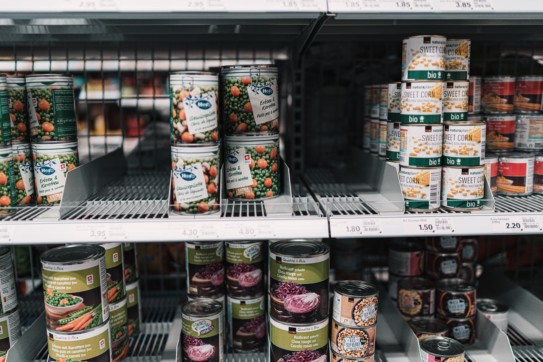Lessons from the Field: How Food Lifeline is Operating During the COVID-19 Pandemic

As Blackbaud employees we work with our customers around the world to provide technology to mitigate the challenges of fighting COVID-19 in their communities, inspiring stories of determination, courage, and delivering organizational missions in the face of crisis have emerged by the dozens. This new series will seek to highlight the incredible work of organizations across the social good sector. We hope you are just as inspired as we are, and take comfort in reading about organizations facing similar challenges as you are.
Food Lifeline, a member of Feeding America, is the largest food bank in Western Washington, distributing donated food to more than 300 food banks, shelters and meal programs throughout their region. They put out roughly 134,000 meals every day to hungry children, adults and seniors. In a typical month they distribute 180,000 pounds of food. The concentration of COVID-19 in Washington state has made an already complicated job even tougher – they’ve suddenly been thrust into a disaster-type response the likes of which none of the staff could have prepared for.
The response to the COVID-19 pandemic hitting their area was swift. Amythyst Shipman, Food Lifeline’s Director of Operations, convened a cross-team workgroup for their response and identified seven key areas of concern and assigned a staff lead for each. They also had the workgroup undertake scenario planning, such as what if the city went on full lockdown or a staff member tested positive for the virus. They also transitioned to a mostly remote workplace, with a rotation of executive team members and critical staff coming in the office throughout the week.
Programs that include delivering food to those most vulnerable and addressing needs from those who have lost their jobs in the crisis have suffered the most. Food donations have had a sharp decline, especially from retail donors and so they begun food sourcing to cased-out essential groceries and produce. They have shifted fully to a model in which they source pre-packaged food and push deliveries out to agencies. Their current order system will be suspended to ensure all agencies have similar access. All scheduled volunteer activities have been cancelled, which has compounded the challenges of food sorting, packing and distribution so this new model has required them to take new necessary steps to carry out their mission. Core volunteers who have scheduled time and operate like staff have been utilized but they are activating staff on a rotating basis to process raw goods.
While their food output has diminished from 180,000 pounds to 110,000 pounds, they are still working with local, county and state authorities to ensure they meet the critical needs of the hungry in Western Washington. “Board members have kept us focused on vulnerable communities and communities of color, who have been disproportionately impacted,” says Chris Nishiwaki, Director of Marketing and Communication.
As far as fundraising, the team shared they have rescheduled their gala from March 28th to June 13th, with back up planning in place to shift the event to a virtual event should social distancing still be necessary in June. They have spun up project-based fundraisers when necessary to meet specific needs and have found their constituents and the community at large very generous to meet such critical needs for those facing hunger.
When asked what advice they have for other nonprofits as you tread these unchartered waters, the team at Food Lifeline said to protect your staff and keep your focus on delivering your mission to your constituents. These things are not mutually exclusive – your staff need to be supported and kept healthy to ensure your mission is delivered to the people who depend on you. They shared that flexibility is key to meeting all expectations and calls to action.
If you’d like to know more about Food Lifeline and their response to COVID-19, please visit their website at https://foodlifeline.org/covid19/. We thank them for their time, dedication and effort in serving Western Washington and for their leadership in a time of crisis.
Until next time, stay home and stay healthy!
